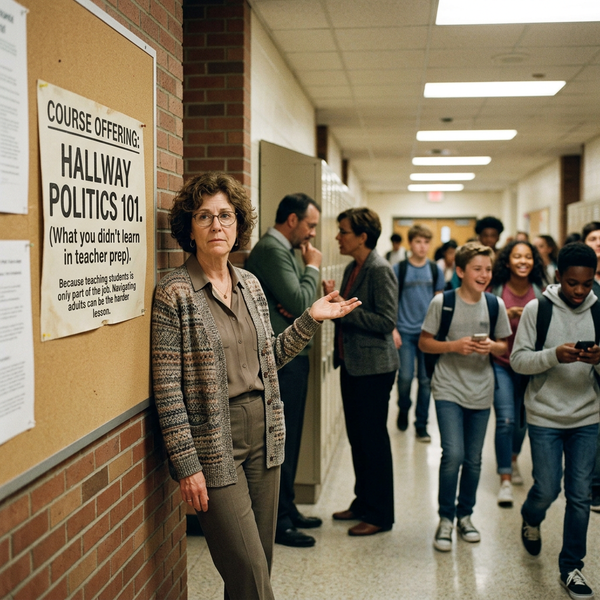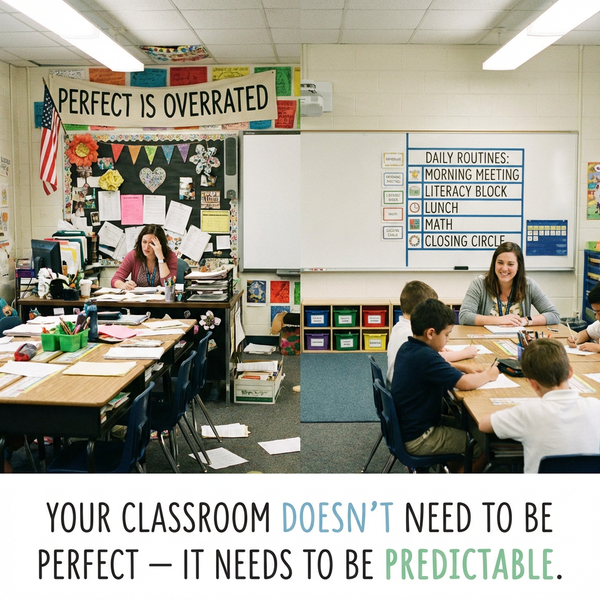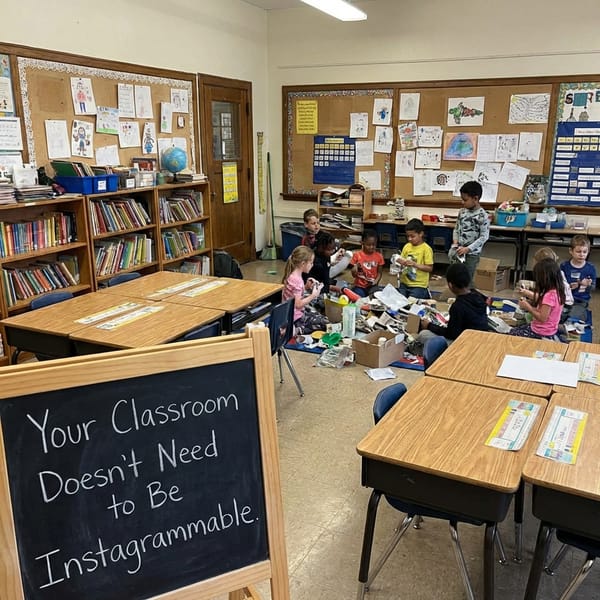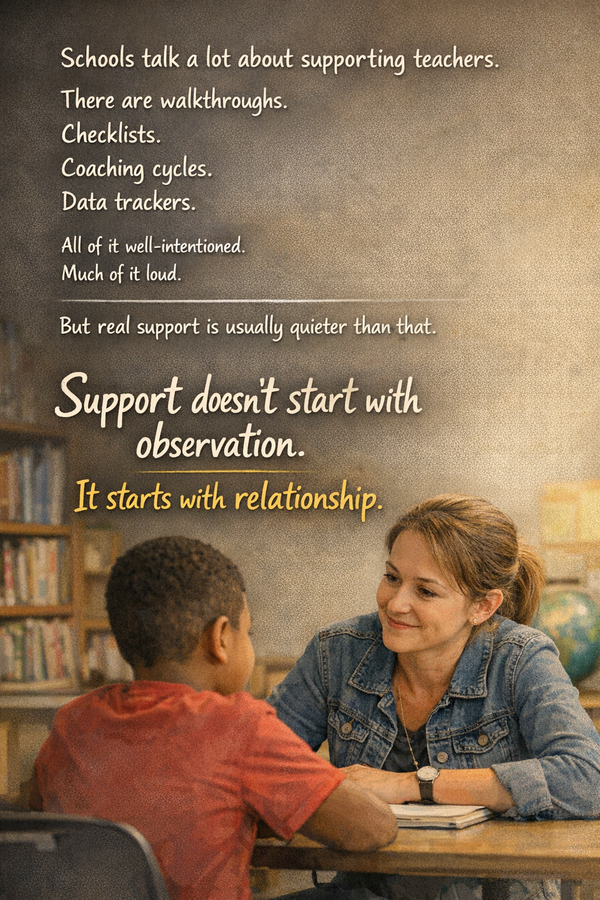The Exhaustion No One Warned You About.
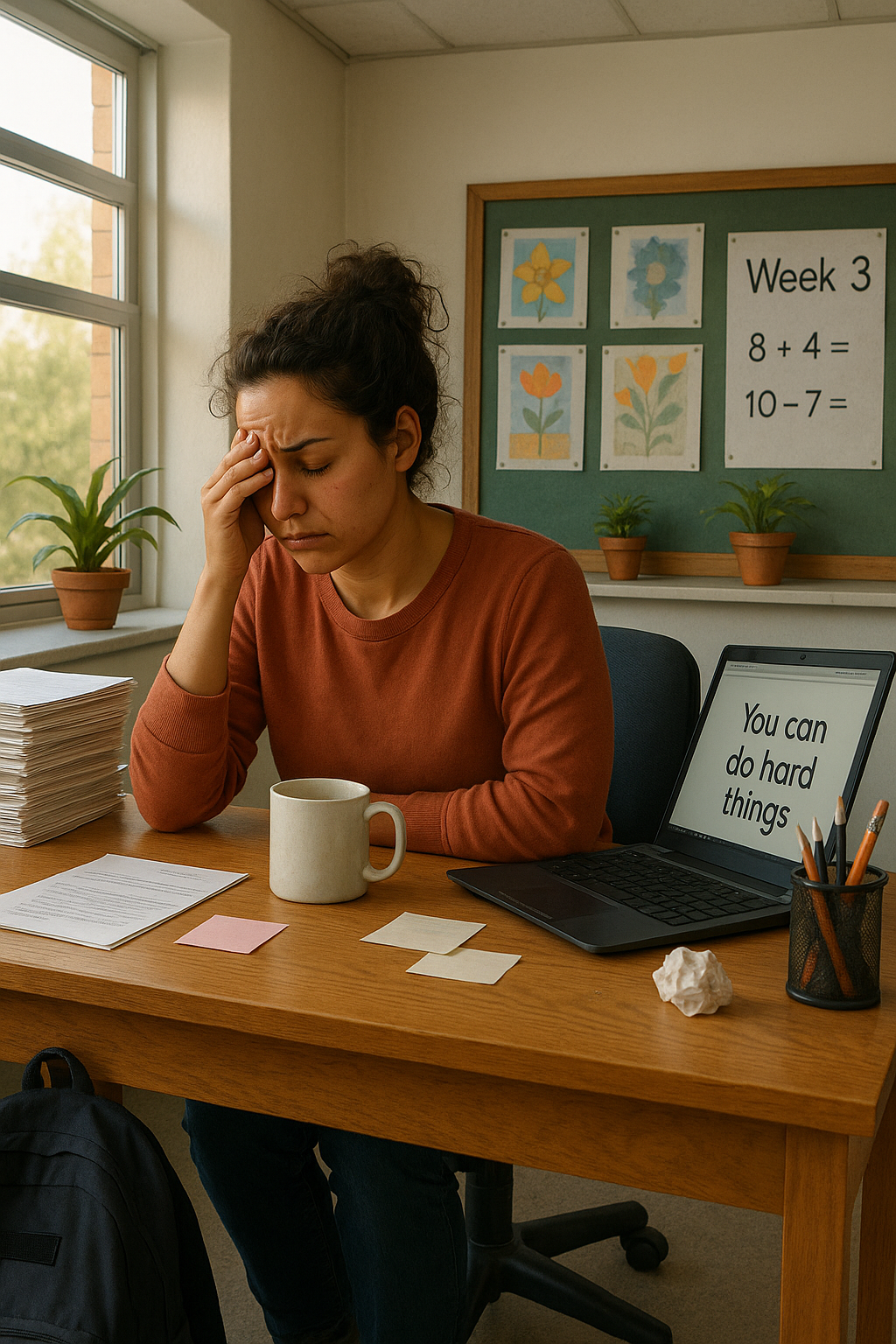
“We’ve all heard it: there’s no tired like teacher tired. But first-year teacher tired? That’s a different league. It fogs your focus, frays your patience, and steals your Sundays. Here’s what it does to you—and what you can do about it.”
Truth Bite
Back when I was in the classroom, my nine-year-old looked at me and said, ‘Mommy, I don’t like who you are when you teach.’ That stopped me in my tracks. The exhaustion was real—but I wasn’t managing it in a way that let me still be her Mommy. It wasn’t just physical; it was mental and emotional—and that’s what my daughter didn’t like.
Visionary Check
I’ve heard it said that ‘teacher tired’ rivals the newborn-phase tired many parents know—and that’s saying a lot. Parents cope by finding more rest, asking for help, or planning a night out. The same can be true for teachers, and that’s what we’re going to dig into.
First, for many, teaching is a calling—not just a job. But as you begin your career, remember it’s also a job, and a demanding one. Learn balance early so you can keep pouring into the other parts of your life.
Balance Move
Your calendar—and your daily schedule—are your best friends in the classroom. Use them for life outside school, too. We block time for lesson planning, meetings, parent calls, and prepping for tomorrow; we also need to block time for a walk with a spouse/partner, dinner with friends, playing with our kids, the gym, or an hour to read.
When your work time is scheduled, you can trust the tasks will get done—and then put work away so you’re fully present in the rest of your life. Part of ‘teacher tired’ is the constant mental to-do list. Without a schedule, it never turns off. That’s not healthy for you, and it spills onto the people you love. As much as you want things perfect at work, you have to give yourself permission to do life, too.
So schedule all of it. You’ll find a rhythm, and eventually you won’t need every detail written down—but until then, put both work tasks and play/rest on the calendar (even quiet time). Will unexpected changes pop up? Yes. But you’ll still have a plan to return to. These habits ease the mental and emotional strain of teaching and living—and, over time, they make you more prepared and more rested. Maybe even more sleep!
You can’t pour from an empty cup—into your classroom or your life. Start planning it all, and you’ll be a better teacher and a better you. You’ve got this.


